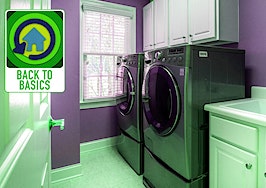As a real estate agent, it is beneficial to discuss different types of solar panels and systems with your buyers in order to refer them to the right solar installation professional.
Solar panels used in residential settings are becoming more commonplace, particularly as buyers are interested in green living and managing energy costs. Homes with existing solar panels should supply the date they were installed, since, like other household appliances, solar panels come with an expiration date.
Twenty-five to thirty years is the average life of a solar panel, so many of the original panels are nearing the end of their useful period. As solar energy becomes more widely accepted, new, modern panels with higher productivity are available.
First, what is solar energy? It’s the transformation of heat, the energy from the sun, into thermal or electrical energy is the simplest definition of solar energy. This area of energy is constantly evolving and comes with a variety of types and use cases, including solar heating, photovoltaics, solar thermal energy, solar architecture, molten salt energy and artificial photosynthesis.
An average home requires 10,400 kilowatt-hours of power for lighting, appliances, heating, cooling, and other power use. Solar panels produce 250 watts of solar power, so 28 to 34 panels are required to completely power a house. Therefore, solar power is usually combined with power from the traditional electric utility grid.
Residential solar power systems
Let’s review the three main types of solar electric power systems used in residences.
Grid inter-tied system
A grid inter-tied system is directly connected to the home and the power utility grid, allowing homeowners to get power either from the home electric system or the utility grid. Switching between these two systems is seamless and provides the ability to balance the system production and the home power requirements.
When a grid inter-tied system is producing more power than a home can consume, the excess power can be sold back to the utility, in a system known as net metering.
Conversely, when the solar panels are not producing sufficient energy, the home can draw energy from the utility grid. Grid inter-tied systems are the lowest cost residential power systems as they have the least number of components.
Grid inter-tied residential solar power system with battery backup
This system is also connected to the traditional power grid but adds battery backup to the system. The battery backup enables the system to balance production and demands and protects against power outages.
On bright sunny days, which produce the most energy, production can exceed demand. The excess energy charges the batteries, where it is stored for future use.
As these systems are also connected to the power grid, homeowners can draw from the grid when extra energy is needed and sell power to the grid when there is excess production.
Off-grid solar power systems
As the name implies, these systems have no connection to the utility grid. Without the ability to draw power from the grid when there is excess demand, off-grid systems rely entirely on batteries for power.
To protect against times of insufficient energy, an electric generator is typically added to the system. The generator is relied upon up and used during times of unusual demand.
Considering the cost
Solar panels are a great investment and will make a home more attractive to buyers, but the initial investment can be costly. Panels and installation may cost as much as $10,000, even with the 30 percent federal tax rebate.
As a real estate agent, it is beneficial to be able to understand and discuss the different types of solar panels, but referring buyers to a solar installation professional will guarantee that they will obtain the type of solar energy panels and installation that is most beneficial for their home and their location.
Gerard Splendore is a licensed associate real estate broker with Warburg Realty in New York. Connect with him on LinkedIn.













